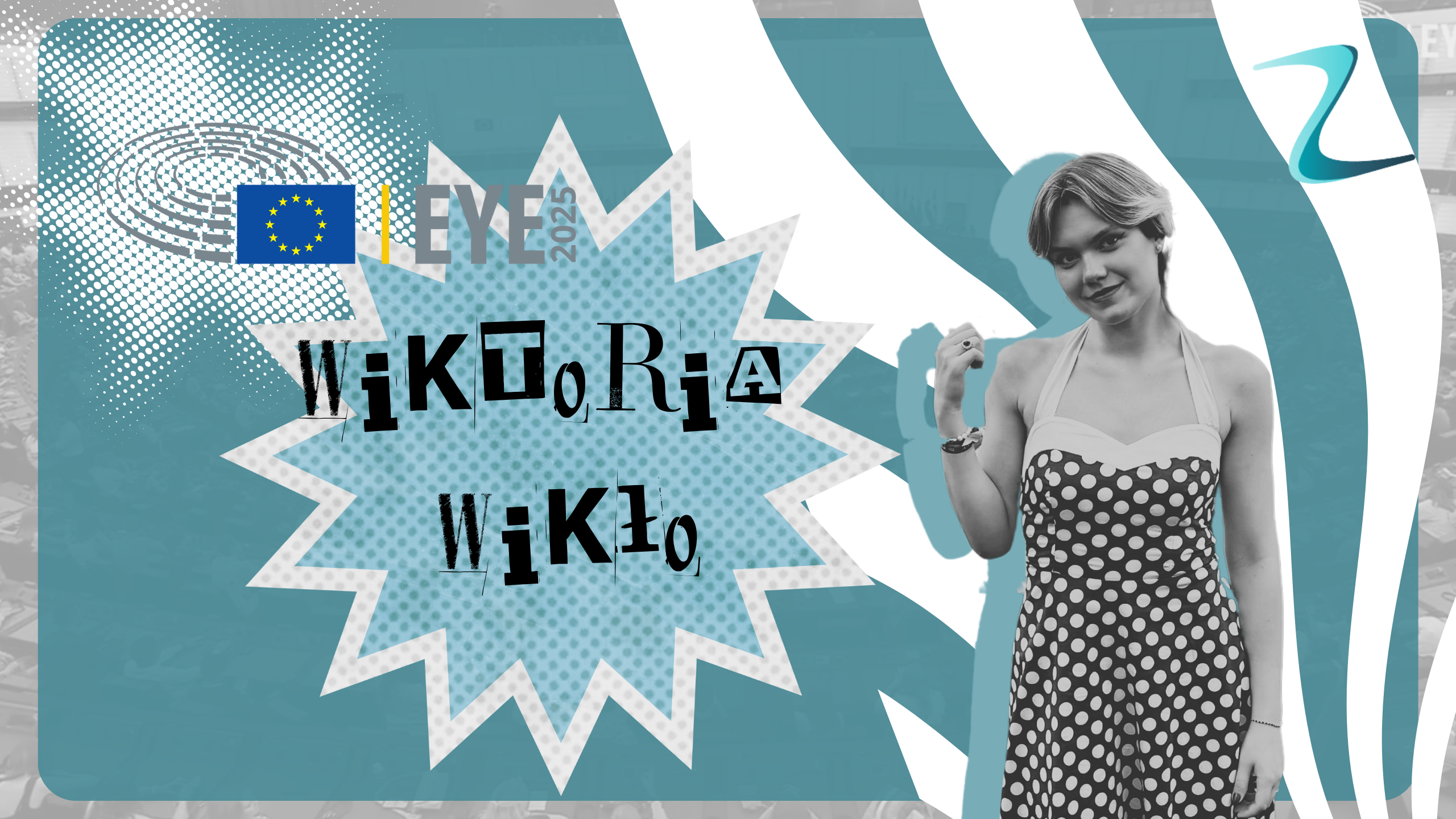During EYE 2025, she joined more than 8,000 young people to discuss key issues—from fair wages to multilingualism. Beyond the workshops and speeches, one message stood out: young voices should not only be heard, young voices must not only be heard, but truly listened to.

“Many young people feel heard—but not listened to. That has to change.”
— Wiktoria Wikło, Youth Councillor from Poland
What does it mean to feel European? For Wiktoria Wikło, it starts with a bus ride to Strasbourg and ends with a renewed belief in democracy.
At just 18, Wiktoria is already deeply involved in politics. She lives in Bielsko-Biała, a city in southern Poland, where she serves in several youth councils—locally, regionally, and even at the national level. Her journey began with a school election that opened the door to local politics. Now, she’s helping shape youth policy on a national scale.
Earlier this month, she was one of the 8,500 young people who took part in the European Youth Event (EYE) at the European Parliament. Organized every two years, the EYE is where youth, democracy, and policy-making merge. This year’s edition was the biggest yet—and for Wiktoria, her first.
A parliament full of possibility
 Strasbourg greeted participants with sun, security checks, and a feeling of collective energy. The EYE Village buzzed with activity. But it was stepping into the Hemicycle, the symbolic core of the European Parliament, that really struck Wiktoria.
Strasbourg greeted participants with sun, security checks, and a feeling of collective energy. The EYE Village buzzed with activity. But it was stepping into the Hemicycle, the symbolic core of the European Parliament, that really struck Wiktoria.
“I was moved. Seeing it from above and then again during the closing session… it felt real. Like we belonged there.”
The two-day event offered more than just symbolism. Participants joined debates, exchanged ideas, explored policy solutions, and—most importantly—connected with each other.
Learning to speak the language of europe

Wiktoria attended workshops on translation and multilingualism—skills she’s passionate about developing. She got to meet actual EU interpreters and even tried live translation exercises.
Other sessions focused on unpaid internships, fair wages, and youth employment. Wiktoria joined discussions hosted by MEPs from the S&D group and reflected on the real inequalities young people face in Europe.
Thousands of young people, a European pulse

It wasn’t just about policies and panels. The event was alive with energy—even in the waiting lines under the June sun.
“We talked, we joked, we laughed at how long it was taking… but we connected. That’s what I’ll remember.”
Heard—but are young people listened to?
When asked whether she believes EU institutions really listen to young people, Wiktoria doesn’t hesitate.
“I think they care. I saw it during the sessions and when Vice-President Pina Picierno answered our questions directly at the Closing Ceremony.”
Still, she’s clear: caring is not enough.
“Many young people feel heard—but not listened to. That’s the problem.”
It’s not cynicism. It’s a call for institutions to move from consultation to co-creation. To not just let young people into the room—but give them a seat at the table.
Written by
Shape the conversation
Do you have anything to add to this story? Any ideas for interviews or angles we should explore? Let us know if you’d like to write a follow-up, a counterpoint, or share a similar story.
